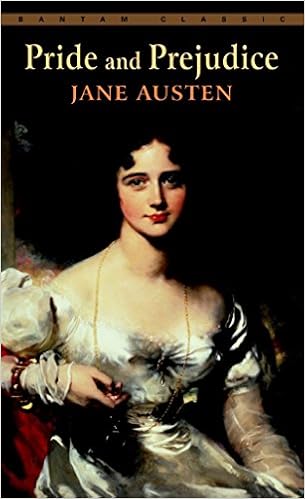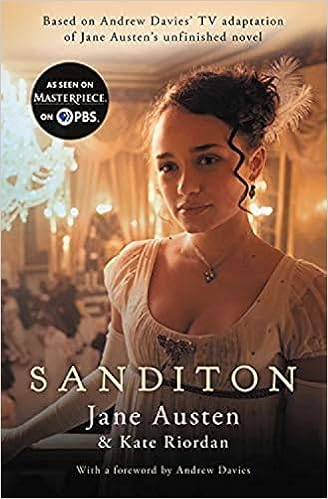
Description
Elizabeth Bennet is the perfect Austen heroine: intelligent, generous, sensible, incapable of jealousy or any other major sin. That makes her sound like an insufferable goody-goody, but the truth is she's a completely hip character, who if provoked is not above skewering her antagonist with a piece of her exceptionally sharp -- but always polite -- 18th century wit. The point is, you spend the whole book absolutely fixated on the critical question: will Elizabeth and Mr. Darcy hook up? "The wit of Jane Austen has for partner the perfection of her taste."—Virginia Woolf From the Publisher For over 150 years, Pride And Prejudice has remained one of the most popular novels in the English language. Jane Austen herself called this brilliant work her "own darling child." Pride And Prejudice , the story of Mrs. Bennet's attempts to marry off her five daughters is one of the best-loved and most enduring classics in English literature. Excitement fizzes through the Bennet household at Longbourn in Hertfordshire when young, eligible Mr. Charles Bingley rents the fine house nearby. He may have sisters, but he also has male friends, and one of these -- the haughty, and even wealthier, Mr. Fitzwilliam Darcy -- irks the vivacious Elizabeth Bennet, the second of the Bennet girls. She annoys him. Which is how we know they must one day marry. The romantic clash between the opinionated Elizabeth and Darcy is a splendid rendition of civilized sparring. As the characters dance a delicate quadrille of flirtation and intrigue, Jane Austen's radiantly caustic wit and keen observation sparkle. From the Inside Flap For over 150 years, Pride And Prejudice has remained one of the most popular novels in the English language. Jane Austen herself called this brilliant work her "own darling child." Pride And Prejudice , the story of Mrs. Bennet's attempts to marry off her five daughters is one of the best-loved and most enduring classics in English literature. Excitement fizzes through the Bennet household at Longbourn in Hertfordshire when young, eligible Mr. Charles Bingley rents the fine house nearby. He may have sisters, but he also has male friends, and one of these -- the haughty, and even wealthier, Mr. Fitzwilliam Darcy -- irks the vivacious Elizabeth Bennet, the second of the Bennet girls. She annoys him. Which is how we know they must one day marry. The romantic clash between the opinionated Elizabeth and Darcy is a splendid rendition of civilized sparring. As the characters dance a delicate quadrille of flirtation and intrigue, Jane Austen's radiantly caustic wit and keen observation sparkle. For over 150 years, "Pride And Prejudice has remained one of the most popular novels in the English language. Jane Austen herself called this brilliant work her "own darling child." "Pride And Prejudice, the story of Mrs. Bennet's attempts to marry off her five daughters is one of the best-loved and most enduring classics in English literature. Excitement fizzes through the Bennet household at Longbourn in Hertfordshire when young, eligible Mr. Charles Bingley rents the fine house nearby. He may have sisters, but he also has male friends, and one of these -- the haughty, and even wealthier, Mr. Fitzwilliam Darcy -- irks the vivacious Elizabeth Bennet, the second of the Bennet girls. She annoys him. Which is how we know they must one day marry. The romantic clash between the opinionated Elizabeth and Darcy is a splendid rendition of civilized sparring. As the characters dance a delicate quadrille of flirtation and intrigue, Jane Austen's radiantly caustic wit and keen observation sparkle. Though the domain of Jane Austen’s novels was as circumscribed as her life, her caustic wit and keen observation made her the equal of the greatest novelists in any language. Born the seventh child of the rector of Steventon, Hampshire, on December 16, 1775, she was educated mainly at home. At an early age she began writing sketches and satires of popular novels for her family’s entertainment. As a clergyman’s daughter from a well-connected family, she had an ample opportunity to study the habits of the middle class, the gentry, and the aristocracy. At twenty-one, she began a novel called “The First Impressions” an early version of Pride and Prejudice . In 1801, on her father’s retirement, the family moved to the fashionable resort of Bath. Two years later she sold the first version of Northanger Abby to a London publisher, but the first of her novels to appear was Sense and Sensibility , published at her own expense in 1811. It was followed by Pride and Prejudice (1813), Mansfield Park (1814), and Emma (1815). After her father died in 1805, the family first moved to Southampton then to Chawton Cottage in Hampshire. Despite this relative retirement, Jane Austen was still in touch with a wider world, mainly through her brothers; one had become a very rich country gentleman, another a London banker, and two were naval officers. Though her many novels were published anonymously, she had many early and devoted readers, among them the Prince Regent and Sir Walter Scott. In 1816, in declining health, Austen wrote Persuasion and revised Northanger Abby , Her last work, Sandition , was left unfinished at her death on July 18, 1817. She was buried in Winchester Cathedral. Austen’s identity as an author was announced to the world posthumously by her brother Henry, who supervised the publication of Northanger Abby and Persuasion in 1818. Excerpt. © Reprinted by permission. All rights reserved. Chapter One It is a truth universally acknowledged that a single man in possession of a good fortune must be in want of a wife.However little known the feelings or views of such a man may be on his first entering a neighbourhood, this truth is so well fixed in the minds of the surrounding families that he is considered as the rightful property of some one or other of their daughters."My dear Mr. Bennet," said his lady to him one day, "have you heard that Netherfield Park is let at last?"Mr. Bennet replied that he had not."But it is," returned she; "for Mrs. Long has just been here, and she told me all about it."Mr. Bennet made no answer."Do not you want to know who has taken it?" cried his wife impatiently. "You want to tell me, and I have no objection to hearing it."This was invitation enough."Why, my dear, you must know, Mrs. Long says that Netherfield is taken by a young man of large fortune from the north of England; that he came down on Monday in a chaise and four to see the place, and was so much delighted with it that he agreed with Mr. Morris immediately; that he is to take possession before Michaelmas, and some of his servants are to be in the house by the end of next week.""What is his name?""Bingley.""Is he married or single?""Oh! single, my dear, to be sure! A single man of large fortune; four or five thousand a year. What a fine thing for our girls!""How so? How can it affect them?""My dear Mr. Bennet," replied his wife, "how can you be so tiresome! You must know that I am thinking of his marrying one of them.""Is that his design in settling here?""Design! nonsense, how can you talk so! But it is very likely that he may fall in love with one of them, and therefore you must visit him as soon as he comes.""I see no occasion for that. You and the girls may go, or you may send them by themselves, which perhaps will be still better, for as you are as handsome as any of them, Mr. Bingley might like you the best of the party.""My dear, you flatter me. I certainly have had my share of beauty, but I do not pretend to be anything extraordinary now. When a woman has five grown-up daughters, she ought to give over thinking of her own beauty.""In such cases, a woman has not often much beauty to think of.""But, my dear, you must indeed go and see Mr. Bingley when he comes into the neighbourhood.""It is more than I engage for, I assure you.""But consider your daughters. Only think what an establishment it would be for one of them. Sir William and Lady Lucas are determined to go, merely on that account, for in general you know they visit no newcomers. Indeed you must go, for it will be impossible for us to visit him if you do not.""You are over scrupulous surely. I dare say Mr. Bingley will be very glad to see you; and I will send a few lines by you to assure him of my hearty consent to his marrying whichever he chooses of the girls; though I must throw in a good word for my little Lizzy.""I desire you will do no such thing. Lizzy is not a bit better than the others; and I am sure she is not half so handsome as Jane, nor half so good-humoured as Lydia. But you are always giving her the preference.""They have none of them much to recommend them," replied he; "they are all silly and ignorant like other girls; but Lizzy has something more of quickness than her sisters.""Mr. Bennet, how can you abuse your own children in such a way? You take delight in vexing me. You have no compassion on my poor nerves.""You mistake me, my dear. I have a high respect for your nerves. They are my old friends. I have heard you mention them with consideration these twenty years at least.""Ah! you do not know what I suffer.""But I hope you will get over it, and live to see many young men of four thousand a year come into the neighbourhood.""It will be no use to us if twenty such should come since you will not visit them.""Depend upon it, my dear, that when there are twenty, I will visit them all."Mr. Bennet was so odd a mixture of quick parts, sarcastic humour, reserve, and caprice, that the experience of three and twenty years had been insufficient to make his wife understand his character. Her mind was less difficult to develop. She was a woman of mean understanding, little information, and uncertain temper. When she was discontented she fancied herself nervous. The business of her life was to get her daughters married; its solace was visiting and news. Read more
Features & Highlights
- Nominated as one of America’s best-loved novels by PBS’s
- The Great American Read
- “It is a truth universally acknowledged, that a single man in possession of a good fortune must be in want of a wife.” So begins
- Pride and Prejudice,
- Jane Austen’s witty comedy of manners—one of the most popular novels of all time—that features splendidly civilized sparring between the proud Mr. Darcy and the prejudiced Elizabeth Bennet as they play out their spirited courtship in a series of eighteenth-century drawing-room intrigues. Renowned literary critic and historian George Saintsbury in 1894 declared it the “most perfect, the most characteristic, the most eminently quintessential of its author’s works,” and Eudora Welty in the twentieth century described it as “irresistible and as nearly flawless as any fiction could be.”





